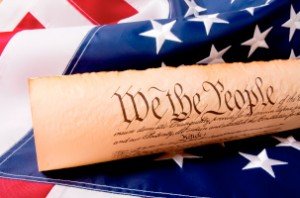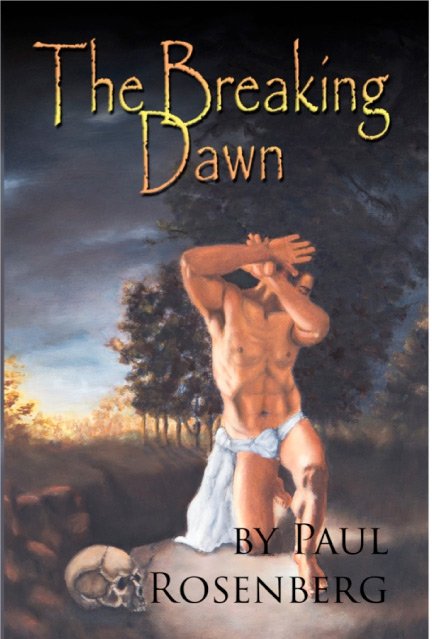
Whatever complaints we may have about the US Constitution, it’s hard not to appreciate this phrase in its preamble:
[to] secure the blessings of liberty to ourselves and our posterity…
The problem of course is that the word “liberty” has been so abused that it no longer has a clear meaning. It’s used as a “hooray for us” term and not a great deal more[1]. Still, I like the phrase in the Constitution, and so I’d like to substitute a fresh term: panarchy. The improved phrase runs like this:
to secure the blessings of panarchy to ourselves and our posterity
That is meaningful, even within the storm of distraction and distortion that is our modern world.
Political Freedom
For those of you who are unfamiliar with panarchy, it refers to a condition of “live and let live,” explicitly including political choices. In other words, panarchy means freedom of choice, including political choice.
A condition of panarchy is one where you can choose what kind of government you will be ruled by, or choose to be ruled by none at all. That’s actual free choice… as opposed to the political version of free choice, which means, “Choose between the options we give you.”
The truth is that none of us in the modern West enjoys political freedom. We are permitted to fight about political details, but we’re not free to choose ways of life other than the ones provided to us. It’s because of this that political powers blather on and on about “liberty.” It deflects attention from the true state of affairs.
Bear in mind, please, that panarchy and political freedom hearken directly back to John Locke’s Second Treatise on Government and his definition of mankind’s natural state:
To understand political power aright, and derive from it its original, we must consider what estate all men are naturally in, and that is, a state of perfect freedom to order their actions, and dispose of their possessions and persons as they think fit, within the bounds of the law of Nature, without asking leave or depending upon the will of any other man.
Also bear in mind that this was the foundation of the American Revolution. Among other things, Jefferson held Locke to be one of the three greatest men who ever lived, and Samuel Adams wrote this about him in 1771:
Mr. Locke has often been quoted in the present dispute between Britain and her colonies, and very much to our purpose. His reasoning is so forceful that no one has even attempted to disprove it.
Panarchy in Practice
Panarchy delivers political freedom, in addition to physical and economic freedom. Here are the kinds of choices that are available to us all under panarchy:
- Do you think a constitutional republic is the best model of human organization? Great, go ahead and set one up.
- Do you think a monarchy is best? No problem. Set one up. No one will oppose you.
- Would you prefer a voluntaryist arrangement? Go for it.
- Want to build an anarco-syndicalist system? Whether or not most of us think that’s a great idea, you remain free to try.
There’s only one limitation for any set of arrangements: You can’t force anyone into your plan. We all remain free to choose, with no one forcing or forbidding.
“But It Can’t Work!”
What this really means is, “I must kill that concept.” It’s seldom more than a knee-jerk opposition to something outside the status quo.
The wild thing about this is that the people who object have no way of knowing what they’re saying is true: Nothing but the system they idolize is permitted, and this has been the case for a long, long time.
The last time we had a chance to experiment with political freedom in the West was in parts of North America during the 18th and 19th centuries, before alternatives to the system were violently suppressed. And that went pretty well for those who stayed westward of power… even in wild country.
As for working out the practical details, that’s simple enough. The problem is that political types instantly demand a full, foolproof plan, covering every detail. That’s not only silly, but the plan would become obsolete on the second day.
The solution is simply to get out of the way and let people act on their own. That’s what free markets do, isn’t it? And they usually work quite well.
The demand for a perfect plan in advance is, first of all, impossible. Second of all, it would be almost useless if it were possible. Thirdly and most directly, it’s a delaying tactic; its true purpose is to freeze people in place.
Panarchy is moral. It’s a better model. It delivers actual liberty.
Panarchy would secure the blessings of liberty to ourselves and our posterity, and if not perfectly (nothing is going to be perfect at this stage of human development), it would certainly be better than the political systems that killed 262 million people in the 20th century.
The bar for panarchy to surpass is frightfully low. All that truly stands in its way is superstition.
* * * * *

A book that generates comments like these, from actual readers, might be worth your time:
I just finished reading The Breaking Dawn and found it to be one of the most thought-provoking, amazing books I have ever read… It will be hard to read another book now that I've read this book… I want everyone to read it.
Such a tour de force, so many ideas. And I am amazed at the courage to write such a book, that challenges so many people's conceptions.
There were so many points where it was hard to read, I was so choked up.
Holy moly! I was familiar with most of the themes presented in A Lodging of Wayfaring Men, but I am still trying to wrap my head around the concepts you presented at the end of this one.
Get it at Amazon ($18.95) or on Kindle: ($5.99)
* * * * *
Paul Rosenberg
www.freemansperspective.com
[1] Properly, liberty is “a condition in which an individual’s will regarding their own person and property are unopposed by any other will.” Or in simple speech, it’s “where we can do whatever we want, so long as we don’t hurt anyone else.”
If you are actually the original author, please do reply to let us know!